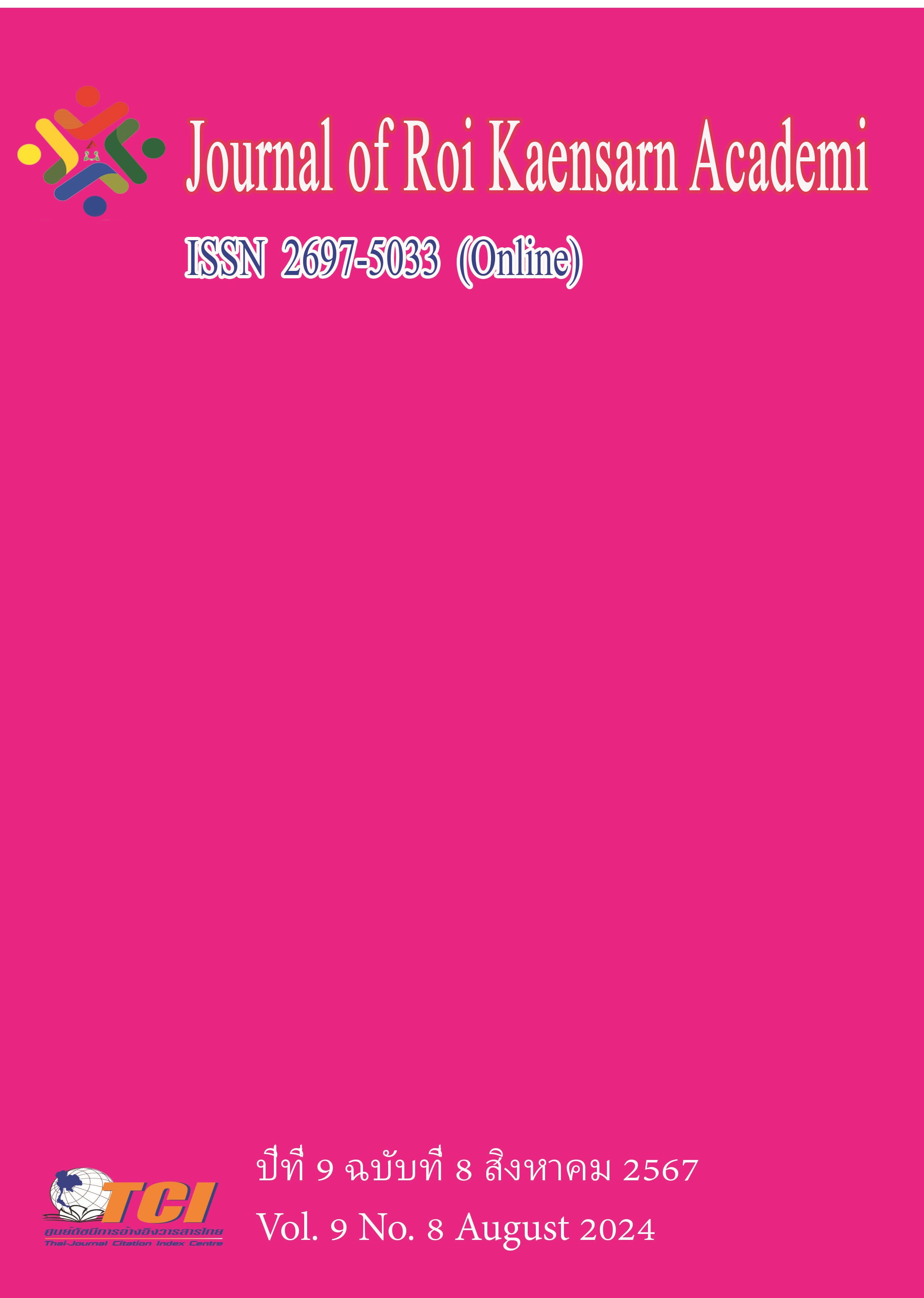The Strategic Plan for Improving the Professional Competence of Counsellors in Guangxi Universities of China
Main Article Content
บทคัดย่อ
Background and Aim:In China, the professional competencies of university counselors are pivotal not only to their career progression but also play a crucial role in shaping the quality of education and student development. The significance of this topic emerges from the evolving demands placed on educational institutions to foster environments that support holistic student growth, encompassing academic, emotional, and social dimensions. This discourse aims to delve into the development of professional competencies among university counselors in Guangxi, examining the existing challenges and proposing targeted strategies for improvement within this context. The analysis integrates theoretical insights with empirical findings to offer a comprehensive overview of the professional development landscape for university counselors.
Materials collection and methods:The study adopts a mixed-methods approach, integrating quantitative and qualitative data from questionnaires and interviews. A total of 400 participants were selected from a pool of 4,364 counselors and 3,867 administrators, including nine university administrators who provided insights into strategic planning for enhancing counselor competencies.
Result:Schools need to make more use of internal resources and capabilities.And can provide more professional training through multiple channels,Evaluation and feedback mechanisms also need to be further improved,Help counselors adapt to external environmental factors, so as to improve the vocational ability of college counselors.
Conclusion:In the analysis of professional competencies among university counselors in Guangxi, this study brings forward substantial findings that contribute to our understanding of educational counseling in a specific regional context. By employing a "Counselors' Professional Competency Matrix," the research delineates several key areas of competency deemed critical for effective counseling in higher education. These include Students' Career Planning and Employment Guidance, Students' Mental Health Education and Crisis Management, Counselors' Practical Research Skills, and Organizational Structure. These findings can be contrasted with global trends and similar studies to highlight similarities and divergences that inform both regional practices and broader theoretical implicatio
Article Details
เอกสารอ้างอิง
Benner, P., Sutphen, M., Leonard, V., & Day, L. (2010). Educating nurses: A call for radical transformation. Jossey-Bass.
Bostrom, N. (2014). Superintelligence: Paths, dangers, strategies. Oxford University Press.
Brown, A. M. (2019). Enhancing professional competency in counseling: Ensuring effective client care, ethical practice, and personal growth. Journal of Counseling Practice. 27 (3), 150-165.
Brown, C., & Smith, J. (2019). Balancing strategic objectives with real-time client demands: Achieving a delicate equilibrium in counseling practice. Journal of Counseling Management. 31 (4), 180-195.
Chen, W., & Qian, L. (2019). Challenges in China's higher education system: Addressing resource inequality and curriculum reform. International Journal of Educational Development. 38 (2), 105-119.
Gladding, S. T. (2015). Counseling: A comprehensive profession. Pearson.
Hernandez, R., & Fernandez, M. (2021). The role of organizational support in enhancing counselor effectiveness in educational settings. Journal of Counseling Effectiveness. 29 (4), 175-190.
Hernandez, R., & Fernandez, M. (2021). Counseling services and their alignment with the university's mission: A comparative study. Journal of Higher Education Counseling. 31 (3), 210-225.
Huang, M., & Wang, P. (2021). Practical training for university counselors: Addressing the diverse needs of students in Guangxi. Journal of Educational Development. 59 (2), 210-225.
Johnson, L., Smith, R., & Miller, T. (2020). Integrating strategic planning within counselor training programs: Improving competency in cultural sensitivity and ethical decision-making. Journal of Counselor Education. 48 (3), 215-230.
Kaplan, R. S., & Norton, D. P. (1996). The balanced scorecard: Translating strategy into action. Harvard Business School Press.
Li, X., & Zhou, Y. (2020). Enhancing professional competencies of university counselors in Guangxi: Comprehensive training programs, policy alignment, and resource allocation. Journal of Higher Education Management. 32 (6), 410-425.
Liu, J. (2021). Opportunities for policy innovation and educational transformation in China's higher education system. Educational Policy Journal. 64 (5), 345-362.
Luckin, R., Holmes, W., Griffiths, M., & Forcier, L. B. (2016). Intelligent learning: Harnessing AI to personalize education. Pearson.
McClelland, D. C. (2013). Testing for competency rather than for "intelligence". American Psychologist. 28 (1), 1-14.
Miller, G. E. (1990). The assessment of clinical skills/competency/performance. Academic Medicine. 65 (9 Suppl), S63-67.
Roberts, K., & Anderson, T. (2021). The impact of strategic planning integration on counselor job satisfaction: A holistic approach to professional development and engagement. Journal of Counseling Research. 56 (2), 145-160.
Smith, A., & Jones, B. (2020). Integrating career guidance within academic counseling services: A pivotal element of global university counseling frameworks. International Journal of Career Development. 44 (1), 75-90.
Smith, J. (2022). Enhancing counselor competency through strategic assessment. Journal of Educational Strategy. 35 (4), 102-110.
Sun, T., & Zhao, L. (2022). Comparative analysis of counselor development strategies in Guangdong and Guangxi: Case studies for higher education implementers. Journal of Educational Leadership. 45 (1), 98-112.
Taylor, R., Chen, S., & Patel, M. (2019). Global trends in mental health education and its role in educational counseling. Journal of Counseling Psychology. 38 (2), 102-118.
Thompson, R., & Martin, S. (2018). Strategic planning in counseling: Proactively navigating a rapidly changing landscape. Journal of Counseling Strategy. 34 (4), 289-305.
Wang, Y. (2021). Higher education in China: Innovation and social progress. Educational Review. 45 (3), 120-135.
Wei, C., & Zhang, J. (2021). Comprehensive training needs for university counselors guiding students in a rapidly evolving socio-economic landscape. Journal of Student Affairs Research and Practice. 58 (4), 301-315.
Yang, L. (2022). The role of university counselors in shaping students' ideological, moral, and cultural values in China. Journal of Educational Counseling. 47 (3), 198-213.
Zhang, H., & Li, X. (2020). The cultivation of high-level professionals for a globally competitive knowledge economy. Journal of Global Education. 52 (4), 215-230.
Zhang, L. (2018). The underemphasis of practical research skills in counselor training programs across Asia. Journal of Asian Counseling Research. 27 (1), 45-60.

